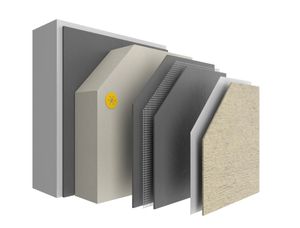Environmentally Friendly Thermal Insulation Composite System (DE-UZ 140)
Facade insulation is often the most effective way for consumers to reduce greenhouse gas emissions and to act effectively in terms of climate protection. Due to reduced heating costs, even money can be saved in the long run. By using environmentally friendly and resource-saving materials and components in External Thermal Insulation Composite Systems (ETICS) with the Blue Angel, possible health and environmental impacts can be reduced to a minimum. ETICS are robust and durable. In addition, the Blue Angel certifies good optical properties through tested resistance to growth.
-

StoTherm Cell (nur zulässig mit den Komponenten gemäß Anhang)
Sto SE & Co. KGaA -
Benefits to the environment and health
- low level of harmful materials
- environmentally friendly thermal insulation
- façades without algacides and fungicides


